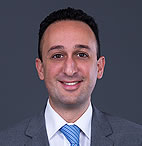
Egypt
There do not appear to be any recent cases or other legal developments in Egypt regarding legal professional privilege.

There do not appear to be any recent cases or other legal developments in Egypt regarding legal professional privilege.
The Egyptian legal system is a civil law system and is based upon a system of codified laws. The Egyptian Civil Code combines Shari’a law ("Islamic Religious Law") and Napoleonic Code (which forms the basis of the French Civil Code). Many civil codes of other Middle Eastern countries have modelled their legal system on the Egyptian Civil Code.
There is no established system of binding precedents in the Egyptian courts; previous judicial decisions do, however, have persuasive authority. In practice, the lower courts find themselves both morally and practically bound by the principles and precedents of the higher courts.
In many civil law jurisdictions in the region, including Egypt, the concepts of legal professional privilege and "without prejudice" communications do not exist per se. The parties therefore have the right to use any document which may support their position. Lawyers in Egypt, however, will be bound by duties of confidentiality; these duties in many cases incorporate concepts similar to legal professional privilege.
The common law concept of standard disclosure is not available in Egypt, which helps to protect internal confidential documents. A party can however request the court to order disclosure of a specific document, if it can be shown that the document in question is material and relevant to the dispute.
Legal professional privilege protects all communications between a professional legal advisor and their clients from being disclosed without the permission of the client. The privilege is solely for the benefit of the client, and not the lawyer. The objective of this legal principle is to protect one's access to the justice system by ensuring individuals can disclose all relevant information to their legal advisers without the fear that this disclosure may result in negative repercussions or prejudice them in the future.
A lawyer ceases to be bound by the requirements of legal professional privilege protection if the lawyer can demonstrate that documentation or information:
A lawyer may disclose certain documents / information that would otherwise be protected by lawyer-client privilege to the extent such disclosure is required by a valid order of a court of other governmental body having jurisdiction, provided that the lawyer provides the client with reasonable prior written notice of such disclosure and makes a reasonable effort to obtain a protective order preventing or limiting the disclosure and/or requiring that the documents / information so disclosed be used only for the purposes required by law.
It is advisable that if parties are attempting to settle their dispute in Egypt, they should qualify any form of communications with statements to the effect that any offer or communication does not constitute an admission of liability. Parties should also seek an undertaking that any information contained within such communications will not be used as evidence.
It appears that the same privilege protections do not apply to in-house legal counsel advising officers, directors or employees of the company as they are not independent to the client. However, to protect this information, it is possible to enter into a confidentiality agreement between the employer and the employed in-house legal counsel.
Legal professional privilege has not been clearly defined within the context of merger control in Egypt.
Content to follow shortly.

Senior Legal Consultant
[email protected]
T +971 4 438 6392
View bio